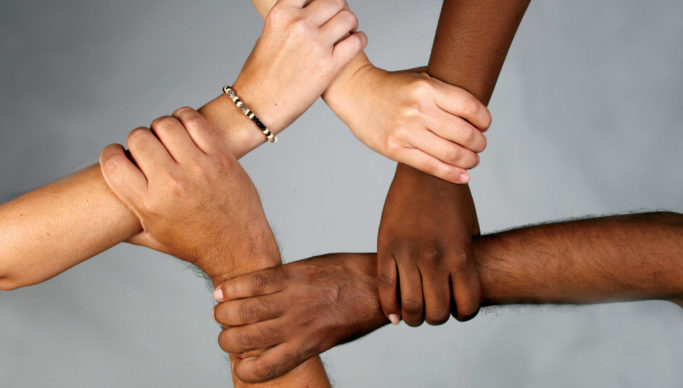
How Racially Concerned, Aware and Active Are You? The National Association of Evangelicals Has a Test That Shows How Much or How Little
- By Gladys McBride --
- 01 Oct 2023 --
Are you “committed to pursuing racial justice and reconciliation, even at the cost of personal sacrifices?”
The National Association of Evangelicals (NAE) wants to know your answer to that and 19 other questions to which you have the option to answer within a spectrum ranging from Strongly Disagree to Strongly Agree, with “Neutral” in the middle.
Prompted by a widening gap in the way different denominations approach racial matters, the NAE decided to take action. A recent study revealed deep schisms among religious Americans on the subject. Responding to the question, “Which is the bigger problem in the U.S.: people overlooking racism when it exists or seeing racism where none exists,” majorities of white evangelicals (72%), as well as white Catholics (60%) and white mainline Protestants (54%), answered that claims about racism where there is none was the bigger issue. Far fewer Black Protestants (10%), non-Christian religious Americans (31%) and unaffiliated Americans (35%) agreed.
An attempt to bridge the gap is the NAE’s new “Racial Justice Assessment tool,” posted on their website September 25.
The introduction page states the situation and the NAE’s mission:
“Evangelicalism is standing at a pivotal moment in history. As the nation grapples with racism and struggles to pursue racial justice and reconciliation, evangelicals have an opportunity to engage winsomely and courageously.”
Quoting from Ephesians 2:14, “For he himself is our peace, who has made the two groups one and has destroyed the barrier, the dividing wall of hostility…” NAE’s statement continues, “As stewards of influence, the National Association of Evangelicals seeks to demonstrate the beauty of a Church committed to racial justice and reconciliation.”
Mekdes Haddis, NAE’s first Racial Justice and Reconciliation Collaborative project director spent months meeting with representatives of some of the many NAE member denominations and other partners to learn what would be most helpful. According to her, some said they wanted to “help people realize that they lack an understanding” of race-related matters or hoped participants would be convinced to get more engaged on topics of racial justice.
Haddis, an Ethiopian American, hopes that the assessment and the resources recommended—which include works by Martin Luther King Jr. and Christian best-selling authors Jemar Tisby and Tim Keller, as well as works by Ta-Nehisi Coates and videos on race by the New York Times and Veggie Tales creator Phil Vischer—will open a window to participants on what is going on beyond their own communities on these issues.
“We felt like it was important to engage in what’s happening outside of our Christian bubble,” she said.
Beyond the assessment, the collaborative aims to widen its net by offering a fall retreat for Black and Indigenous people of color, providing “spiritual encouragement” for those church leaders who actively work on racial justice and reconciliation or who lead majority-white congregations or who wish to start multiethnic churches.
As NAE President Walter Kim said in the video introducing viewers to the three-minute assessment, “The Bible teaches the essential dignity of all humans and our shared desire to live in community. Yet the reality of sin results in the denigration, alienation and injustice that we see before us.”


















